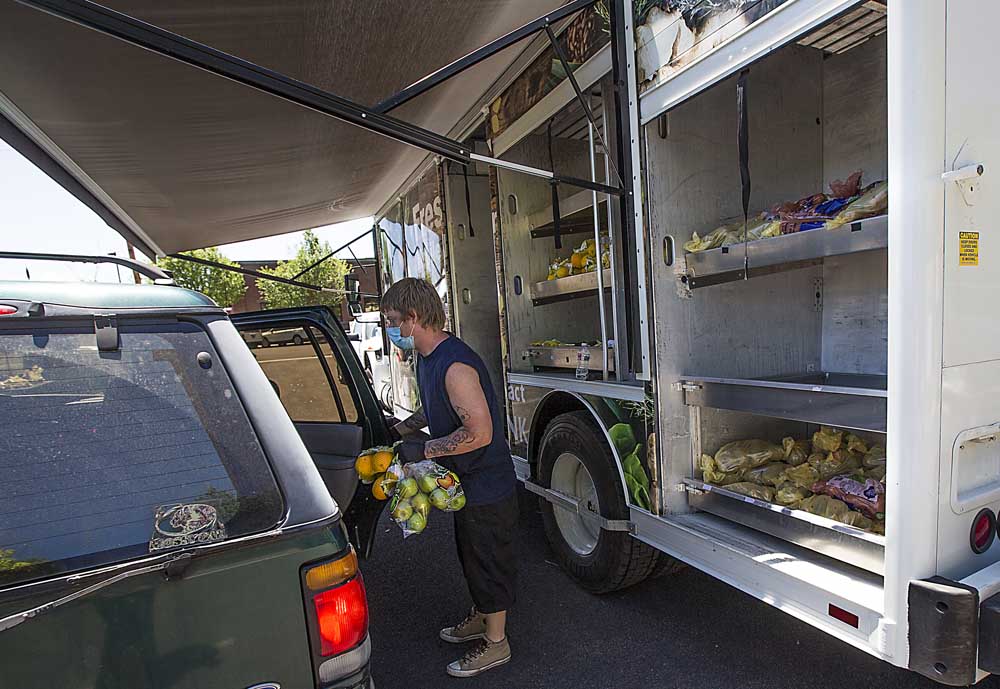Retired docs, dentists volunteer
Published 4:00 am Saturday, January 12, 2013
Dr. Ralph Litchfield didn’t want to just walk away from his 35-year career in medicine when he retired seven years ago.
“You’d hate to just give that up,” said Litchfield, 74, who has an emeritus medical license that allows him to continue practicing as a volunteer. “There’s a certain shock when doctors say ‘I’m retired, I’m done with that.’ ”
Emeritus medical licenses give doctors, physician assistants and acupuncturists a chance to practice medicine and prescribe medications so long as they forgo any type of payment or compensation for their services. A similar license exists for dentists.
But while these professionals work for free, they must follow licensing and credentialing requirements similar to those met by paid medical professionals — which for some highlights their value and their willingness to serve.
“They’re not here because it’s their duty or because they’ve got bills to pay,” said Debbie Stumbaugh, director of Medical Teams International’s Central Oregon Mobile Dental Program.
“They’re here because they enjoy what they do,” Stumbaugh said.
Doctor emeritus
Litchfield, a former family doctor, has spent his retirement doing some travelling and some light gardening around his home. He’s also stops by the Volunteers in Medicine Clinic of the Cascades in Bend about once a week to serve low-income patients who have no medical insurance.
“It’s a place where I can contribute and give back,” Litchfield said, adding he also enjoys working at the clinic because it gives him a chance to “keep my finger in the pie” and keep track of what’s going on in his community and his profession.
More than 40 percent of the clinic’s doctors have an emeritus medical license, said Jim Ritzenthaler, the clinic’s medical co-director.
Statewide, 468 doctors, physician assistants and acupuncturists with an emeritus license make up about 2.5 percent of 18,225 licensed medical practitioners, according to a September report from the Oregon Medical Board.
People with an emeritus license must pay a $50 licensing fee and obtain 15 hours of continuing medical education credits – one CME credit hour costs about $20, according to the Oregon Health and Science University – each year to continue their practice. Doctors with a non-emeritus medical license must complete 60 credit hours every two years and pay a yearly fee of up to $232, depending on their specialty.
Doctors who practice at the VIM clinic must also obtain credentials from the Central Oregon Independent Practice Association, an organization that reviews the qualifications of doctors and medical practitioners who want to work with area hospitals, clinics and health plans.
“It’s an extensive application,” the clinic’s medical codirector Robert Hakala said, adding the association’s review process looks at several bits of information, including a person’s references, work history, continuing education credits and malpractice history.
Hakala said this process alone can take two to three months to complete, especially if a doctor is no longer practicing medicine or is moving to Oregon from another state.
But while the clinic requires its volunteers to complete both the licensing and credentialing processes before they start work, it does not pay them; the volunteers are essentially paying the fees to work for free.
“We’re a nonprofit and we need anything (our volunteers) can give us,” Volunteer Manager Kristi Jacobs said, adding seven medical practitioners, including a retired social worker and a retired psychiatrist, are currently going through the credentials process so they can start work.
Volunteer dentists
While the number of medical professionals with an emeritus license is in the hundreds, the state is home to only 20 volunteer dentists, according to the Oregon Board of Dentistry, and the mobile dental service has worked with half of them.
“It’s very nice,” Stumbaugh said of the volunteer dentists she knows. “They’ve seen it all, they’ve done it all and they just have so much experience.”
One advantage of this experience, Stumbaugh said, is that retired dentists are not surprised or shocked when they come across someone who is in dire need of the services the mobile dental program provides to low-income people who lack health insurance.
This means they are understanding of their patients’ problems, Stumbaugh said. But they also want to make a difference in someone’s life, she said, so they are just as committed as anyone else to making sure the program’s patients get the care they need.
Stumbaugh said volunteer dentists do not need to pay a licensing fee, but they must complete the same 40 continuing education credit hours — which cost $32 to $48 each – every two years that non-volunteer dentists must complete in order to maintain their licenses.
Stumbaugh’s program works with 36 dentists from Central Oregon and 10 to 15 dentists who come from outside the local area. About 10 of these have a volunteer license, she said.
One of them is Dr. Spencer Krueger, 67, who retired in 2003 after practicing dentistry for 22 years. Since he retired, Krueger said he spends a couple of days each month volunteering at the mobile dental program and at the Central Oregon Community College dental clinic.
“There are a lot of things I’d rather do (than practice dentistry),” Krueger joked. “But this is a way I can pay back the community.”






